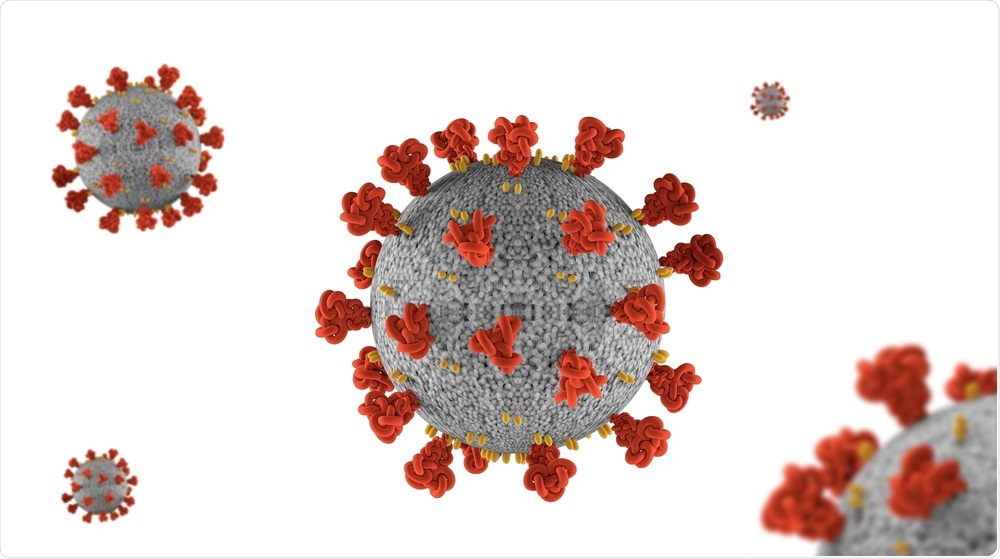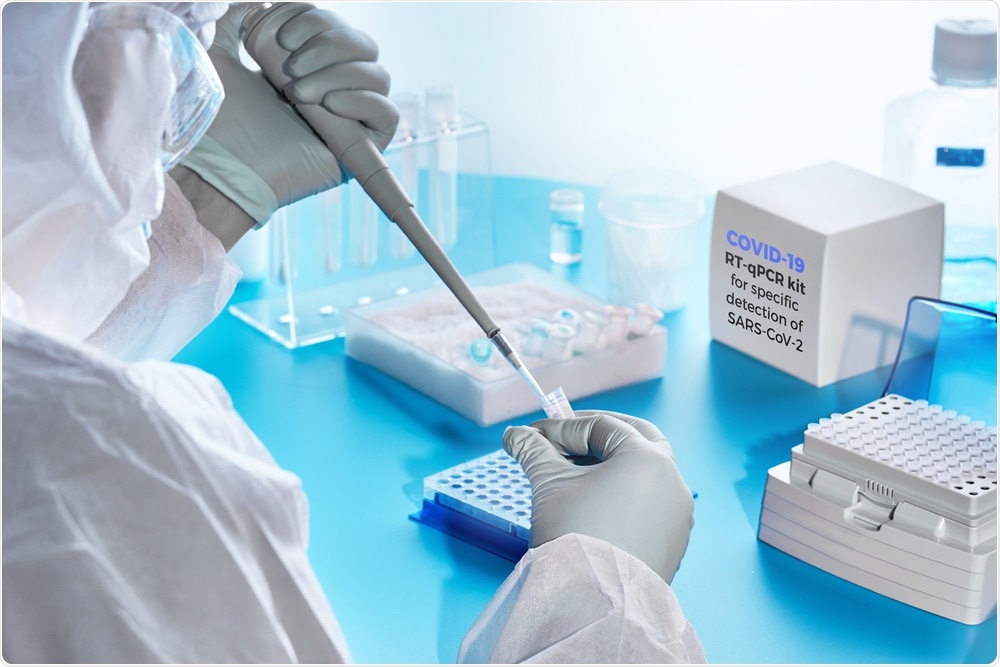When our OSCAR scientists returned to the UK from China in late January 2020, we noticed there was no monitoring at Heathrow Airport, while China was in high alert.
We thought if passengers could get tested while waiting for immigration and luggage reclaim, that would help to identify the infected and infecting individuals.
Measures of isolation can be applied to control the spread of the disease. That triggered our team to look into a rapid test for COVID-19.

Image Credit: GEMINI PRO STUDIO/Shutterstock.com
Why is it important to have a reliable and rapid test for COVID-19?
It is important to control the movement of people and the spread of COVID-19. To be able to test while someone is waiting is ideal. Of course, reliability is the most important.
Any false negative and false positive should also be prevented.
What are the limitations of current testing methods for COVID-19?
The standard method is the RT-PCR test. It requires dedicated laboratories and equipment. The test would take 90-120 minutes and samples need to be collected and sent to the laboratory, all of which takes time.
The turn around time is the main issue with RT-PCR tests. Of course, another issue is capacity of testing.

Image Credit: anyaivanova/Shutterstock.com
How did you develop your new test for the rapid detection of COVID-19?
Time is the key! We choose RT-LAMP as the technology platform (vs. PCR) as the reaction time is much shorter.
We adopted the most common laboratory consumables and basic instruments, which are widely available, as the product format so that the product can be quickly deployed and used.
We choose to use swab solutions directly without RNA extraction, to make on-site testing possible.
What are the benefits of using LAMP technology compared to PCR tests?
Faster and simpler. LAMP can amplify DNA much faster. For higher viral load samples, we can detect the results with 15-20 minutes.
Also LAMP requires one temperature (65 oC), and hence a simple heating device or thermos flask will do the job. PCR requires temperature cycling and hence PCR machines, increasing the complexity of testing.
The test you have developed is simple to use and analyze results from. Why is this important?
This makes it possible to test almost anywhere and the test is much cheaper. Now we need to test people regularly, particularly health workers, the cost of the repeated test becomes important too.
How accurate is the Oxsed RiViD Direct test and when will it be available?
Clinical data showed our test has an overall accuracy of 94% with a detection limit of 5 copies per reaction.
After CE registration, the test kits will be available, as a commercial product.
Do you believe that by having a rapid test for COVID-19, countries will feel safer lifting their lockdown measures?
Yes, a rapid and repeated test is the key. The infected can be readily identified and measures can be put in place to control the spread.
The recent outbreak in Beijing was quickly controlled due to the rapid test and tracing measures.
What are the next steps in your research?
Our research in COVID-19 test technology will extend to two extremes (1) the development of a product for personal and home use, and (2) for high throughput screening.
Where can readers find more information?
Our publications:
- Microbial Biotechnology, April 2020, doi:10.1111/1751-7915.13586
- Bio-Design and Manufacturing: May 2020, doi: 10.1007/s42242-020-00075-7
Further information can be found at:
About Professor Zhanfeng Cui
Prof Zhanfeng Cui is the Donald Pollock Professor of Chemical Engineering, Department of Engineering Science, and Director of Tissue Engineering and Bioprocessing, Institute of Biomedical Engineering, University of Oxford. 
He is the Founding Director of Oxford Suzhou Centre for Advanced Research (OSCAR), A research center located in Suzhou, China, and wholly-owned by the University of Oxford. This project of developing rapid test kits for COVID-19 is a collaboration between OSCAR and Engineering Science, Oxford University.